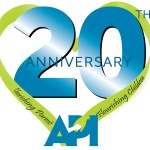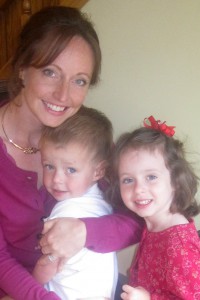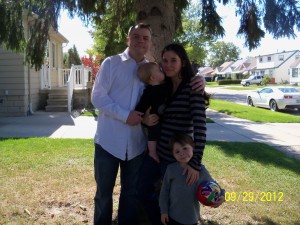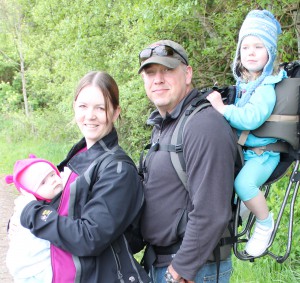By Rita Brhel, API’s publications coordinator, managing editor of Attached Family magazine and an API Leader (Hastings, Nebraska, USA).
 In celebration of Attachment Parenting International’s 20th Anniversary, the “Featuring API Leaders” series honors the unique paths that inspired parents to pursue API Leadership:
In celebration of Attachment Parenting International’s 20th Anniversary, the “Featuring API Leaders” series honors the unique paths that inspired parents to pursue API Leadership:
Father involvement is key to healthy child development, so it is exciting to announce one of our newest API Leaders: Thiago Queiroz of Rio de Janeiro, Brazil. He is also an excellent writer and has shared his story on API’s APtly Said blog. I am thrilled to bring you more through this interview.
RITA: Thank you, Thiago, for your time. Let’s start by learning how you discovered Attachment Parenting (AP).
THIAGO: My inspiration to start practicing AP with my son was bedsharing. At first, it was the logical thing to do, considering the amount of caring we had to give to him at night. But then I started reading more on this subject and ended up finding about AP and falling in love with it. Now, what inspires me is how it feels so right to have such a strong and deep connection with my son.
RITA: We are all introduced to Attachment Parenting in our own unique way and certain parenting practices will facilitate that close relationship with our children more than others. Cosleeping is one of my favorites, too. Have you encountered any challenges in practicing AP?
 THIAGO: Oh, I found all sorts of problems! To start with, my mother didn’t understand very well what my wife and I were doing. I had to be very firm and confident when explaining to my family why we see AP as a better option for our reality [than the authoritarian parenting style he grew up with].
THIAGO: Oh, I found all sorts of problems! To start with, my mother didn’t understand very well what my wife and I were doing. I had to be very firm and confident when explaining to my family why we see AP as a better option for our reality [than the authoritarian parenting style he grew up with].
Besides that, I received some bullying at work for the choices I made in parenting. For my colleagues, I was the “weirdo, organic, hippie” who had a son born at home and who talked about weird things like exclusive breastfeeding, positive discipline, babywearing and things like that.
RITA: Did you seek out Attachment Parenting International out of the need for parent support yourself?
THIAGO: I found API by Googling on AP. I was so excited about AP that I wanted to read more and more, so I Googled it and found API and API’s Eight Principles of Parenting. My first contact with API’s staff was to offer help in translating the Eight Principles of Parenting into my language, Brazilian Portuguese. I thought it was so important to have this information available for people in Brazil that I did the translation.
RITA: And from there, you decided to become an API Leader?
THIAGO: If AP is not exactly something widely known and practiced in the United States, you can imagine how it would be in Brazil, where we can find so little material available in our language and so little local support for parents. I’ve always thought I had to be one of the people who would help make AP known in Brazil, so over an year ago, I created an AP Facebook group in Brazil. I started writing a blog about my experiences as a securely attached father, and then I decided it was time to prepare myself to become an API Leader. It was seeing how people needed and wanted support related to a more sensible and respectful way to raise their kids that inspired me along the way.
RITA: How did you find the API Leader Applicant process?
THIAGO: Oh, boy, the API Leader Applicant process was such a beautiful journey to self-acknowledgement! I absolutely loved being an applicant, as I was learning more not just about AP but about being a better human being. I learned so many things that I’m using in my life now that I could never thank API enough for this opportunity.
RITA: Now that you’re an API Leader, what are your plans of how to support parents locally?
THIAGO: I’m sure I’m going to love the meetings. Being able to share experiences and learn from other realities is a blessing. And on top of that, being able to see the babies that attend the meetings grow up is going to be priceless.
RITA: Are there any challenges of being an API Leader that you anticipate?
THIAGO: I believe the challenges of being an API Leader involve the relationships with other people. The ability to connect to other people, to be empathetic to their feelings, and to be able to hear without judging is the key challenge for anyone who wants to truly help other parents.
RITA: What of API’s resources do you think you’ll find most helpful as an API Leader in supporting other parents?
THIAGO: I have no doubt it will be the repository for the meetings. Meeting ideas and handouts are the sort of resources from API that will help me a lot on my job.
RITA: Thank you, Thiago, for your insights. I have one final question. You have already shared about projects that you started before becoming an API Leader. Has API Leadership inspired additional projects in your life to raise AP awareness?
THIAGO: The way I live and breathe AP inspires me to become a book writer and a positive discipline educator, but only time will tell!






